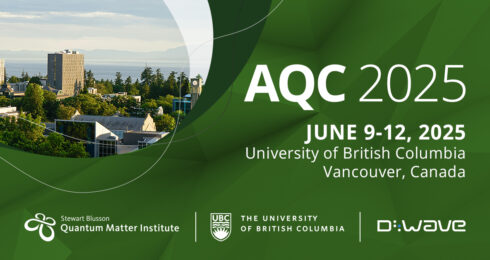Ian Affleck received his B.Sc. in Physics and Mathematics in 1975 from Trent University in Ontario, Canada, and his PhD in Physics from Harvard University in 1979. As a PhD student, he trained under the supervision of legendary high-energy theoretical physicist Sidney Coleman, known for his work in quantum field theory.

Image: Ian Affleck, Investigator Emeritus, Busson QMI; Professor Emeritus, UBC’s Department of Physics & Astronomy.
After three years as a Junior Fellow at Harvard and then an Assistant Professor of Physics at Princeton University, Ian joined the University of British Columbia as a Professor within the Department of Physics & Astronomy in 1987, and joined Blusson QMI since its inception in 2010. He is known internationally for his ability to clarify theory and work closely with experimentalists in condensed matter physics. Ian started his research career in high energy theory and applies methods from this field to low dimensional strongly correlated systems in condensed matter theory.
In particular, he has applied conformal field theory techniques to low dimensional magnetism, Kondo effects and quantum impurity problems. “I enjoy finding mathematically elegant solutions to problems,” Ian says. Most recently, he has been studying theoretical aspects of condensed matter physics, including high-temperature superconductivity, low dimensional magnetism, quantum dots and quantum wires.
According to Scopus, he has published more than 280 publications with over 27,000 citations and an h-index of 79. Ian’s contributions to condensed matter physics has received extensive recognition, and he has received nearly all the physics awards available in Canada and many outside of Canada as well.
As a young physicist, he received a Governor General’s Silver Medal for the highest undergraduate academic standing (1975), the Steacie Prize for remarkable scientific achievements in Canada (1988), the Canadian Association of Physicists (CAP) Herzberg Medal awarded to exceptional Canadian physicists under the age of 40 (1990), and the Royal Society of Canada’s Rutherford Memorial Medal for his contributions to mathematical physics (1991). He was also the recipient of the Senior Killam Research Prize and the Jacob Bieley Prize from the University of British Columbia in 1992, as well as the CAP Prize for Theoretical/Mathematical Physics (1997) and the CAP Brockhouse Medal (2014).
In 2011, Ian was awarded the Lars Onsager Prize (LOP) from the American Society of Physicists (APS) and delivered the LOP lecture “A Random Walk Through Theoretical Physics”, where he gave a historical account of his efforts to apply conformal field theory techniques to experimentally relevant condensed matter models. The LOP recognized his groundbreaking contributions in the advancement and practical application of the principles and techniques of conformal field theory. Specifically, his work has significantly impacted important issues in statistical and condensed matter physics such as the universal behavior of quantum impurity systems and the quantum critical behavior of spin chains.
Ian is a Fellow of the Royal Society of London, the Royal Society of Canada, the APS, and a Foreign Associate of the French Academy of Sciences. He received an honorary Doctor of Laws degree from his alma mater, Trent University, in 1998.


